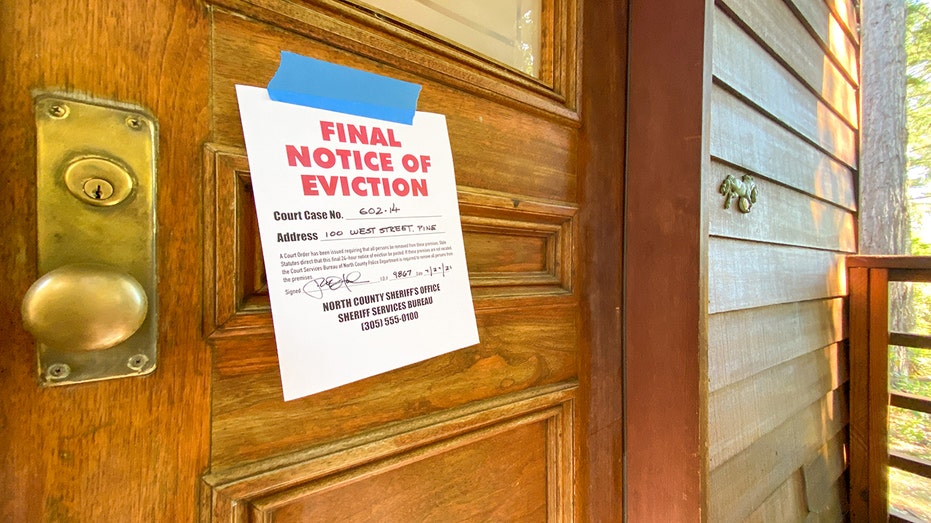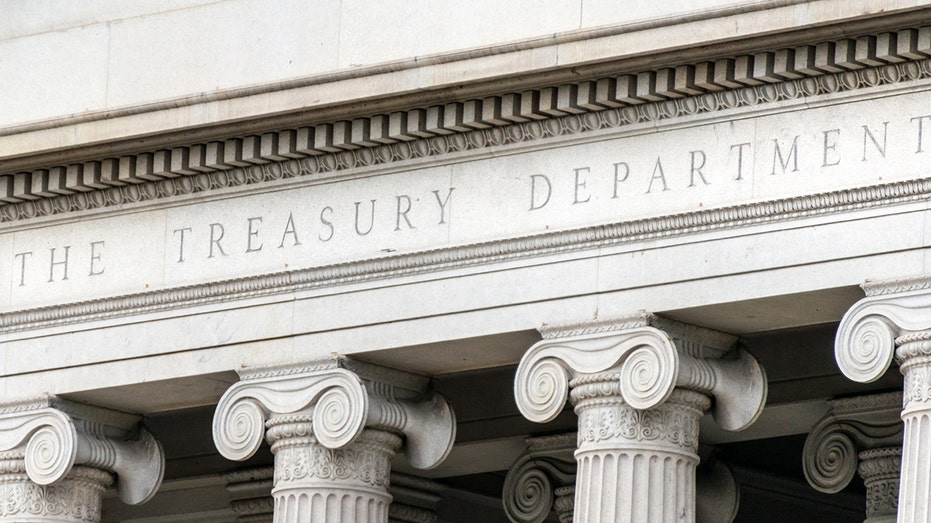New local laws aim to stop rising evictions
States and cities are proposing more bills now that the federal eviction ban is over
Fox Business Flash top headlines for December 23
Check out what's clicking on FoxBusiness.com.
Dozens of cities and states are enacting new laws to protect tenants facing eviction, aiming to stem a tide of new cases and offer renters more ways to settle conflicts with property owners.
Eviction filings nationwide started ticking up in September after a yearlong national eviction moratorium ended. By October, the more than 48,000 filings represented a 24% increase over those registered in August, according to Eviction Lab, a research group at Princeton University that tracks filings in 31 cities and six states.
EVICTIONS SLOWLY RISING AHEAD OF CHRISTMAS FOLLOWING END OF FEDERAL BAN
National filings are only about 60% of their pre-pandemic levels, thanks to national rental assistance and local pandemic eviction protections. But in some places, the eviction rate is already higher than before the onset of COVID-19. In New Orleans, which throughout the fall had fewer tenant protections than a number of large cities, November eviction filings surpassed their November 2019 levels, Eviction Lab said.

Eviction notice on door of house with brass door knob. Fictitious address, ID, signature and 555 phone number for fictional usage. (iStock / iStock)
To ease pressure on renters, 21 states and the District of Columbia passed eviction-related legislation in 2021, and a total of 40 states have proposed such laws, according to research from the Pew Charitable Trusts. The 195 proposed eviction laws nationwide this year is 65% more than legislators introduced in 2019.
The new laws include measures that change how evictions are filed to ensure due process and laws that provide tenants the right to legal counsel or mediation services.
New Orleans is resolving about half its new eviction cases through its eviction diversion program, said Marjorianna Willman, director of the Office of Housing Policy and Community Development for the city. The program works directly with landlords and tenants to secure federal rental aid and keep tenants housed. After spending most of this money, New Orleans has applied for more.

Sen. Elizabeth Warren, D-Mass., is joined from left by, Sen. Ed Markey, D-Mass., Rep. Ilhan Omar, D-Minn., Rep. Ayanna Pressley, D-Mass., and Rep. Alexandria Ocasio-Cortez, D-N.Y., as she and other progressive lawmakers advocate for reimposing a nati (AP Photo/J. Scott Applewhite)
Starting next month, New Orleans will tap federal dollars to fund a $2 million program that gives tenants the right to legal counsel, a measure that an increasing number of states and cities are adopting around the country.
"It’s an ideal situation to reduce the number of displaced," Ms. Willman said.
Washington state, Connecticut and Maryland each passed right-to-counsel laws in 2021. Kansas City, Mo., is the latest local government to pass a law guaranteeing free legal representation, after a vote cleared its city council in December. In Winston-Salem, N.C., advocates marched recently and presented a petition to local officials, asking them to implement a right-to-counsel program using available federal money.
LANDLORDS LOOK FOR AN EXIT AMID FEDERAL EVICTION MORATORIUM
"The cases we’re doing, 90% of them wouldn’t have a lawyer before," said Scott Crain, a housing attorney on the staff of the Northwest Justice Project, which is based in Washington state. "We’re doing things like getting cases dismissed, we’re renegotiating rental agreements and we’re getting people to stay in their housing."
Landlords have reacted skeptically to many of the changes. The National Apartment Association, a real-estate lobbying and trade group, has described right-to-counsel programs as a potential misuse of money that could be better put into direct rental assistance.
Since many tenants with unpaid rent—even those represented by attorneys—are likely to have to leave their homes anyway, they end up incurring costs from moving and renting a new apartment. The back rent they owe will still be unpaid, landlords say.

US Treasury Department sign in Washington, D.C., building facade (iStock)
Congress approved more than $45 billion in aid this year to help tenants behind on rent payments. Many local programs charged with distributing the funds struggled to handle the high volume of applications, and the process was slow early on. But by the end of October, the Treasury Department said it had distributed more than $13 billion in aid.
GET FOX BUSINESS ON THE GO BY CLICKING HERE
Tenant advocates say anything governments can do to help renters avoid judgments of eviction on their records is well worth the effort, even when it doesn’t resolve the root problem that leads to evictions in the first place. Evictions are a stigma that can jeopardize a tenant’s ability to secure housing for years.
"The bottom underlying factor is delinquent rent," said Ms. Willman. "So that will still be out there after we exhaust all the rental assistance funding."
This article originally appeared in The Wall Street Journal




















